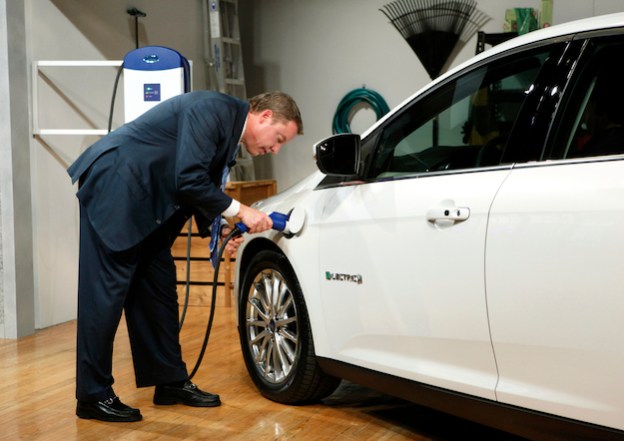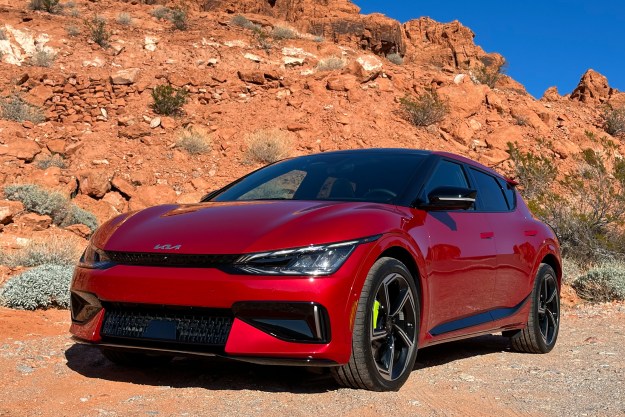
The Detroit News is reporting that Ford has slashed $10,750 out of leasing deals on its Focus Electric model. Additionally, for customers looking to buy rather than lease, Ford has cut $2,000 from the sticker price. Add to that the new 1.9 percent interest rate through Ford Motor Credit, and it is clear Ford wants to get some Focus Electrics off the showroom floor.
To-date, Ford has built 1,627 Focus Electrics but only managed to sell 685 in 2012, which makes it one of the worst selling electric vehicles on the market.
But why isn’t Ford selling any Focus Electrics? We have a couple theories. The Focus Electric, unlike its competitor the Nissan LEAF, was simply a modified platform. Nissan went back to the drawing board when it designed the LEAF from scratch. Although Ford did design the Focus with an electric model in mind; it wasn’t solely an electric from the get-go. This means, the Focus simply doesn’t perform like LEAF.
Even with the name recognition that the LEAF benefits from, Nissan, too, has had to cut prices. Nissan cut 18 percent out of the price of the 2013 LEAF, dropping it down to $28,800. The Focus Electric still stands – even after the price cut – at $37,995.
Fiat CEO Sergio Marchionne admitted late last year that the new Fiat 500 Electric would lose the company $10,000 per unit sold and admitted the vehicle was being built for California compliance alone. Perhaps Ford needs to adopt a similar strategy if it wants to get Focus Electrics off the lot.
We’re disappointed EVs aren’t selling as well as automakers had hoped. We’ve driven both the LEAF and the Focus Electric, and despite their limited range, find them to be hugely enjoyable vehicles. Until public attitudes and battery technology improve, however, automakers keen on building EVs might have to operate at a loss.
Editors' Recommendations
- Here’s how EVs charge as they drive on a stretch of Michigan road
- Tech giant reveals nice price for new EV to take on Tesla
- Here’s how Ford will give EV customers Tesla Supercharger access
- This couple just did something remarkable in an EV
- Ford and GM EV drivers will be able to charge at Tesla Superchargers in February


